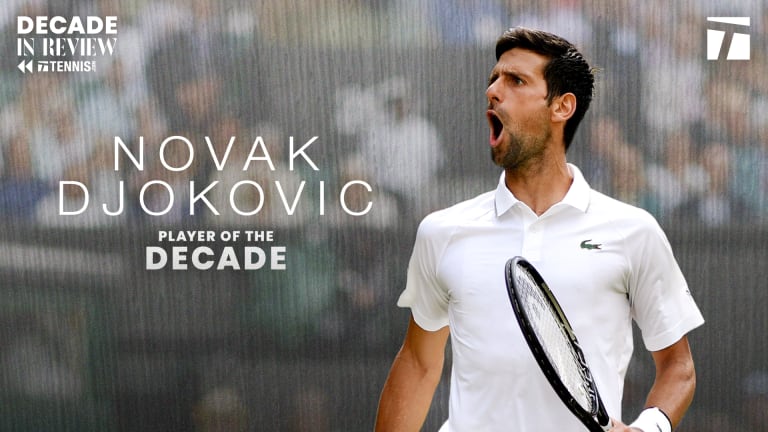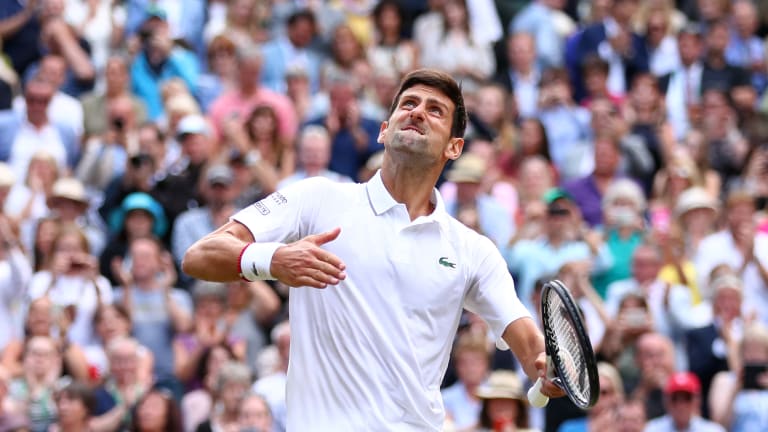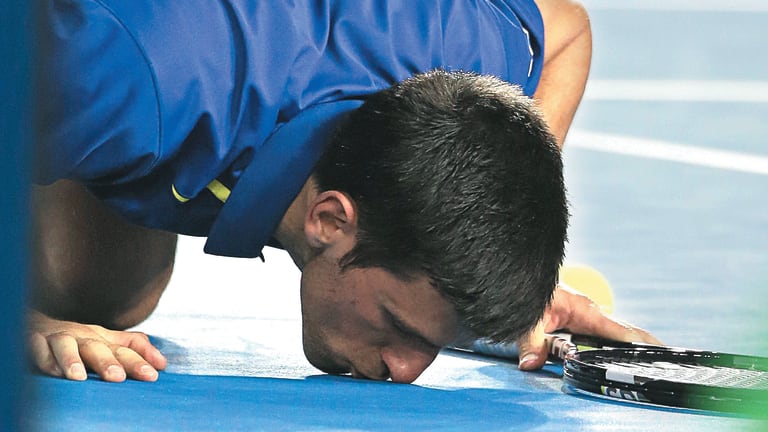The Men's Player of the Decade: Novak Djokovic
By Dec 10, 2019Game, Set, Bet
ATP Madrid Open Betting Preview: A tournament with real opportunity, or another title for the usual suspects?
By Apr 22, 2025Social
Carlos Alcaraz and Rafael Nadal reunite on the red carpet at the Laureus World Sports Awards
By Apr 21, 2025Madrid, Spain
Novak Djokovic returns to Madrid still seeking his 100th tour-level title
By Apr 21, 2025ATP Monte Carlo, Monaco
Monte Carlo takeaways: Alcaraz wins by playing for himself, one-handed backhands hold firm
By Apr 14, 2025Stat of the Day
Alejandro Tabilo now 2-0 against Novak Djokovic after Monte Carlo upset, joins rare company
By Apr 09, 2025ATP Monte Carlo, Monaco
Novak Djokovic apologizes for his “worst day” after Monte Carlo defeat, shifts focus to Roland Garros
By Apr 09, 2025ATP Monte Carlo, Monaco
Novak Djokovic vs. Alejandro Tabilo: Where to Watch, Monte Carlo Preview
By Apr 08, 2025ATP Monte Carlo, Monaco
Carlos Alcaraz, tennis’ happy warrior, brings a unique approach to Monte Carlo and clay
By Apr 08, 2025ATP Monte Carlo, Monaco
Novak Djokovic can avenge 2024 loss to Alejandro Tabilo at Monte Carlo Masters
By Apr 07, 2025The Men's Player of the Decade: Novak Djokovic
The Serbian overcame two living legends, and their fervent fan bases, to assemble one of the best and most consistent 10-year runs in tennis history.
Published Dec 10, 2019
Advertising

The Men's Player of the Decade: Novak Djokovic
Advertising

The Men's Player of the Decade: Novak Djokovic
© Getty Images
Advertising

The Men's Player of the Decade: Novak Djokovic
© 2016 Getty Images